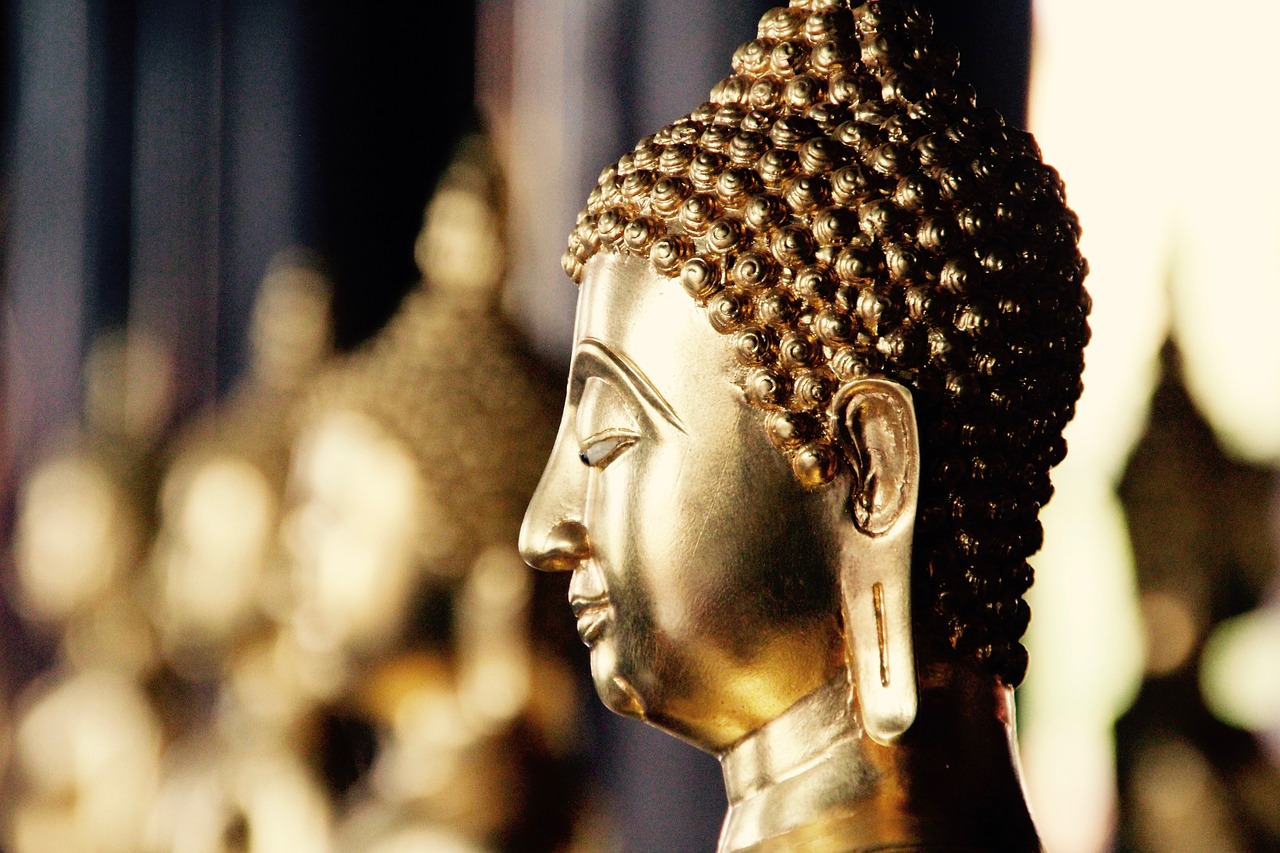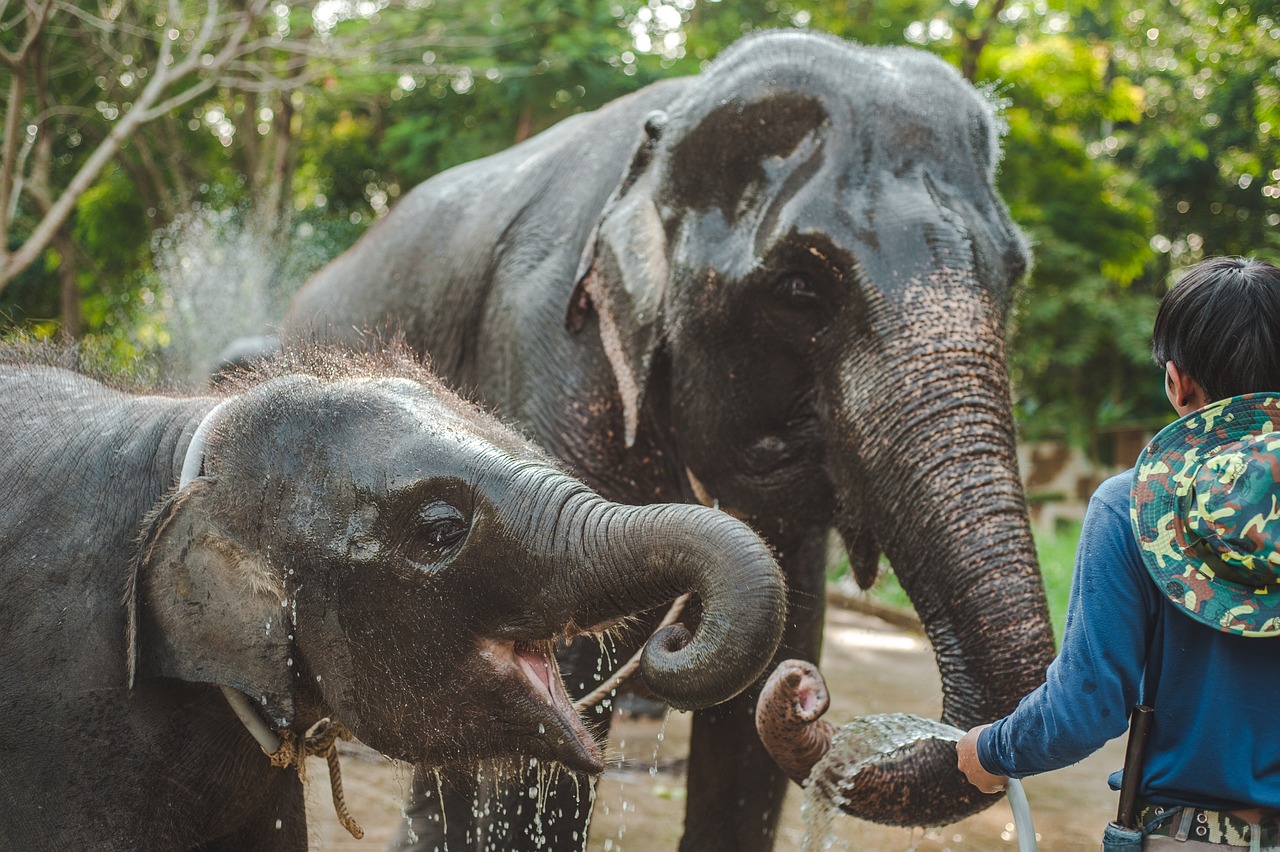
Acquiring knowledge of the Thai language as a tourist or expat will enhance your experience in the Kingdom, and once you have grasped the fundamentals, you will be capable of intriguing the locals with casual conversations.
As a native English speaker, I have found that tones in the Thai language are one of the most challenging aspects. Thai is a tonal language, meaning each word can have up to five different meanings based on whether it is pronounced with a mid, high, low, rising, or falling tone. Don’t be concerned if you can’t fully grasp these tonal variations as a tourist!
Depending on whether you are male or female, polite forms of the language will conclude with either “kráp” or “ká”.
While traveling in Thailand, it is helpful to know a few fundamental Thai phrases, even though many individuals, particularly in popular tourist spots, can communicate in English.
Basic Thai Phrases
The guideline states that for males, sentences should conclude with the word (khrup/krap) and for females, sentences should conclude with the word (ka/kap). This practice is employed in order to maintain politeness and show respect when making statements or asking questions.
- Hello – Sawadee khrup/ka
- Yes – Chai (khrup/ka)
- No – Mai (khrup/ka)
- Maybe – Aaj ja (khrup/ka)
- Thank you – khop khun (khrup/ka)
- Sorry/excuse me – Khor thoad khrup/ka
- Where is the restroom– Hong nam yoo tee nai khrup/ka?
- I need a doctor- Phom dong gaan hai mor maa raak sa khrup/ka
- No worries- Mai pen rai
- Can you speak English? = Kun pood paasaa anggrit dai mai
To put it briefly, the fundamentals of Thai phrases and expressions are enough to assist you in navigating the country during your travels. Of course, there are numerous additional Thai words, but the ones mentioned above are fundamental.
In the event that your bus experiences a breakdown on the road, rather than complaining or getting anxious, Thais tend to adopt the phrase “mai pen rai” as a way to convey that it’s alright, there’s no need to worry, and everything will eventually turn out fine.
If a Thai person makes a mistake with your order or accidentally interrupts you while walking, simply use the well-known phrase “Mai Pen Rai” and rest assured that you will receive a smile and an expression of astonishment.
Basic Greetings in Thai
On my list of essential skills, saying hello, asking how someone is, and expressing gratitude are absolutely necessary. If you can excel at these three words, chances are high that you will be able to make friends and leave a positive impression on locals.
Spoken by over 60 million people globally, the Thai language is both exquisite and intricate. Polite language and greetings play a significant role in Thai culture.
The greeting in Thai language can actually establish the mood for the entire conversation, as it signifies the important value of respect in their culture.
Thai people employ varying greetings based on the time of day, the social standing of the individual they are interacting with, and the circumstances of the situation. Furthermore, the utilization of distinct tones and intonations can entirely transform the significance of a term, rendering Thai a demanding yet gratifying language to acquire.
- Hello – Sawadee khrup/ka
- Good Morning- sawatdee tohn chao
- Good Afternoon- sawatdee tohn bai
- Good Evening- sawatdee tohn yen
- Good Day- chohk dee
- Good Night- ra tree sawat
- How are you? – Sa bai dee mai khrup/ka
- Goodbye! – La gorn khrup/ka
Basic Thai for Eating and Ordering Food
More often than you think, it’s incredibly frustrating to be extremely hungry and discover that your Thai food is excessively spicy to consume. Rest assured, I will now provide you with a selection of crucial Thai vocabulary for dining and placing food orders.
Knowing a few basic Thai words and phrases for ordering and dining out can enhance your dining experience and improve communication with servers and chefs, especially when planning to travel to Thailand or dine at a Thai restaurant.
This introduction will go over frequently used Thai words and phrases for placing food orders, seeking recommendations, and making specific requests.
If you are someone who loves food and wants to discover Thailand’s lively food culture or if you simply want a fast and tasty meal, these expressions and terms will be useful for you. Therefore, let’s begin and acquire a basic understanding of Thai vocabulary used when eating out and placing food orders!
By the way, it is worth complimenting the restaurant by saying “aroy” for the food before you settle the bill. I consistently do this, whether the eatery is upscale or a small, casual street food place. Believe me, a simple compliment can have a significant impact!
- Not Spicy – Mai phet
- A little Spicy- phet nit nawy
- Really Spicy – phet mak
- I would like to order- sang aa-haan
- Delicious- Aroy
Basic Thai for Shopping
If you have plans to visit Bangkok, it’s highly probable that shopping will be included in your itinerary. Thailand provides a diverse range of shopping options, from vibrant street markets to luxurious shopping centers, catering to the avid shoppers.
In order to enhance your shopping experience and effectively communicate with locals, it is beneficial to acquire a basic understanding of Thai words and phrases. This introduction provides an overview of frequently utilized Thai vocabulary and expressions related to shopping.
Exploring the numerous night markets in Bangkok brings me joy, especially when I surprise the locals with my knowledge of Thai words!
Let’s start learning some basic Thai words for shopping so that you can acquire the skills to inquire about prices, negotiate, and make purchases. These useful words and phrases will be helpful when searching for souvenirs, clothing, or any other items.
- That’s expensive! – Paeng mak khrup/ka!
- How much does this cost? – Ra ka tao rai khrup/ka?
- Can you give me a discount please?– Ga ru na lot ra ka hai noi khrup/ka?
Basic Thai to Impress and Gain Street Cred
- Neung, song, saam, see, haa, hook, jet, baat, gow, sip (one to ten)
- You are cute – Khun naa rak khrup/ka
- I’m drunk- Mao Laew
- Having fun? – sanuk mai?
Seasonal
What is the way to express something in Thai?
- Happy Birthday – sùk s?n wan kòet
- Happy New Year – sa wàt dii pii mài
- Merry Christmas – sùk s?n wan khrís mâas
Were you aware that despite Thailand being predominantly Buddhist, there are some Thais who enjoy embellishing their homes for Christmas and organizing festive gatherings?
Relationship
How can the sentence mentioned above be expressed in the Thai language?
- Beautiful – s?ai
- Handsom – lòr
- Kiss – jùup
- Will you marry me – khun jà dtàeng-ngaan gàp ch?n mái
- I love you – ch?n rák khun





